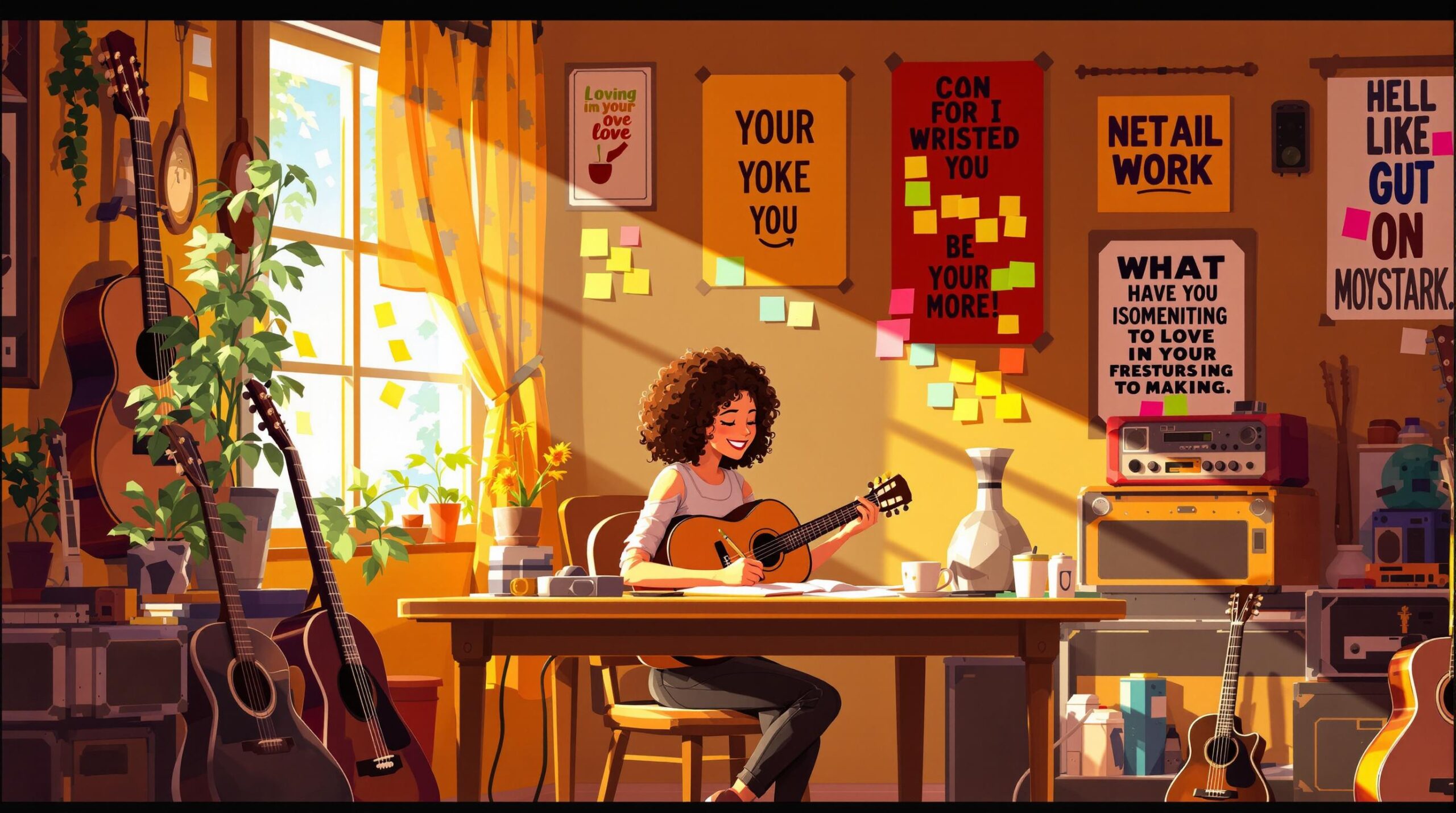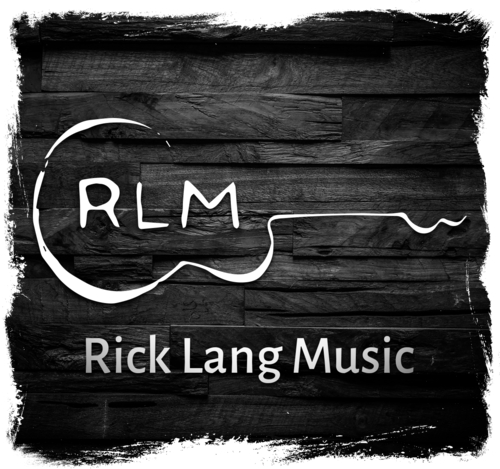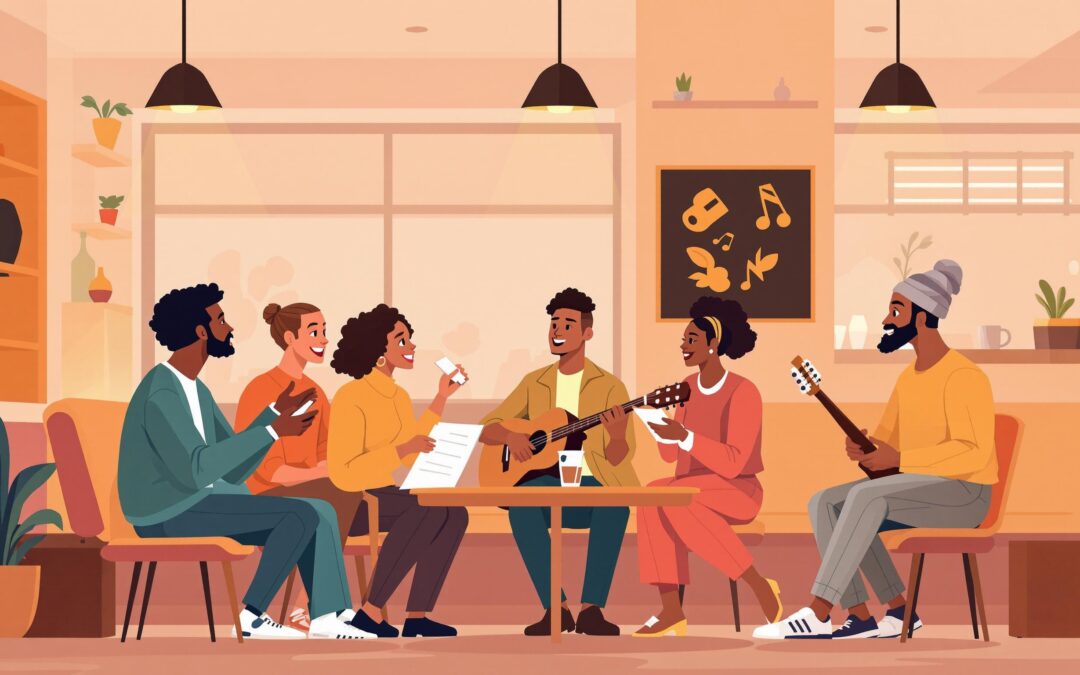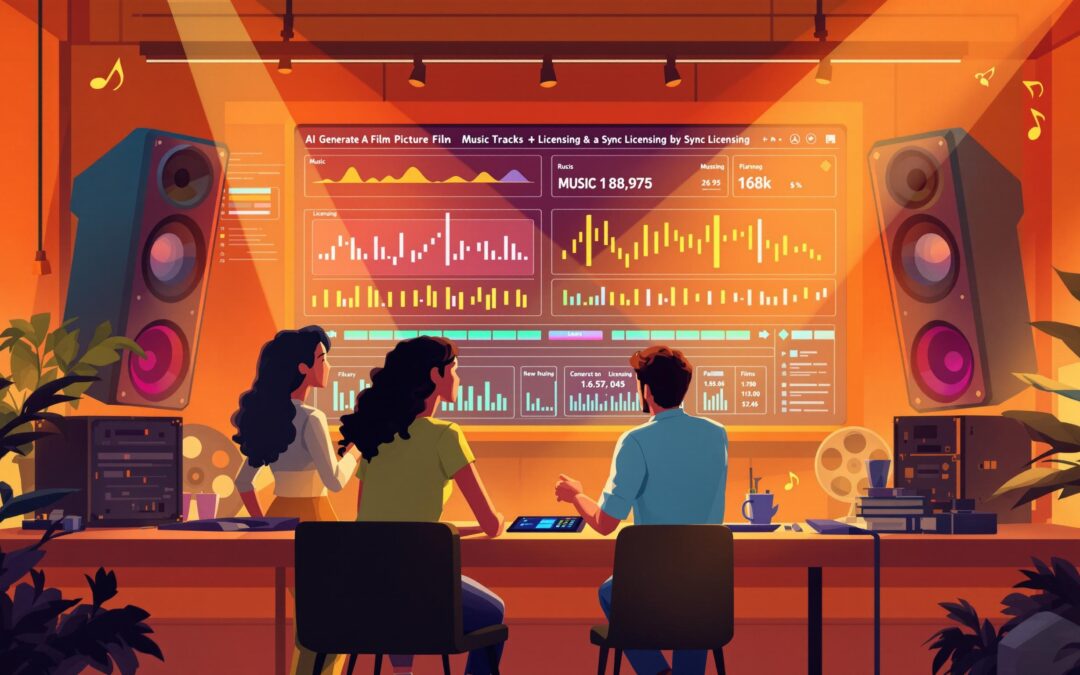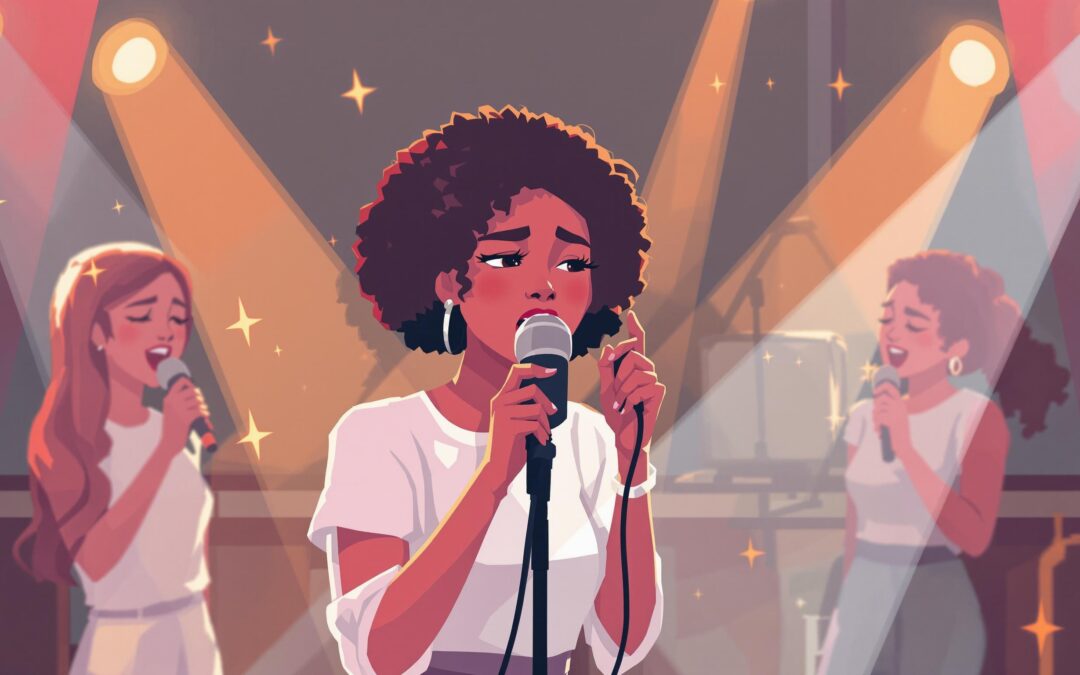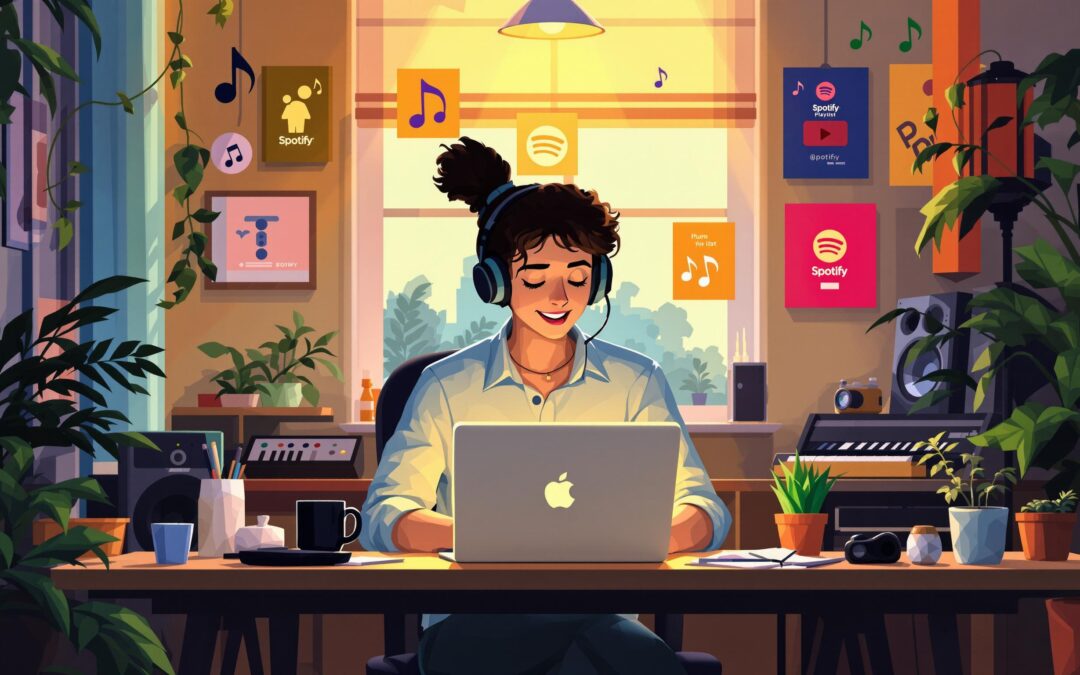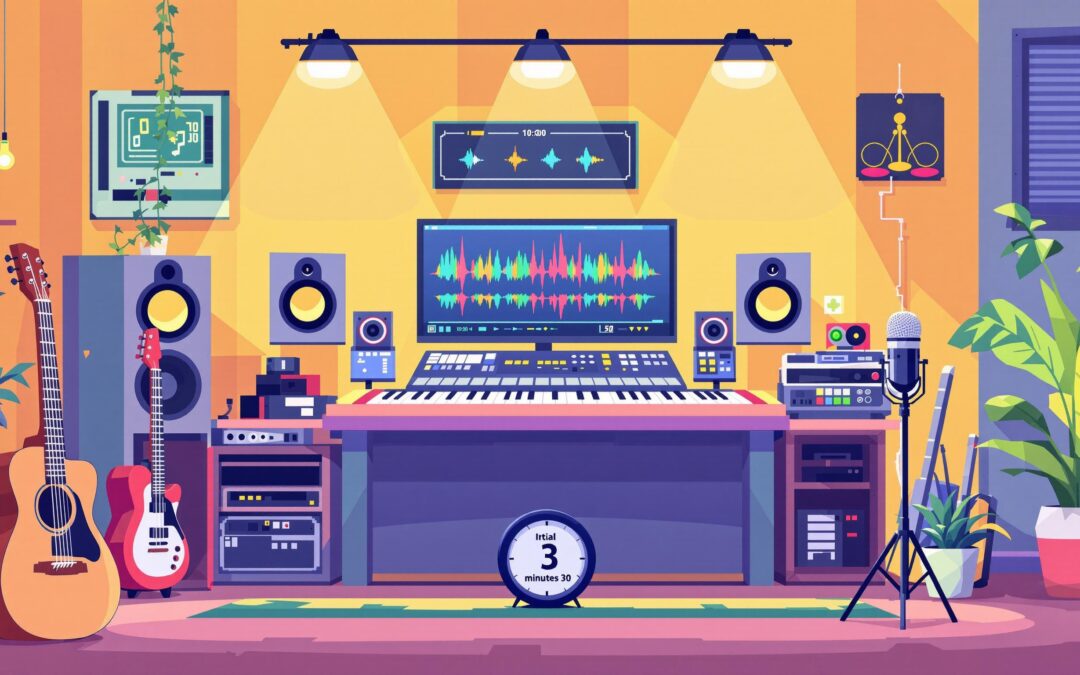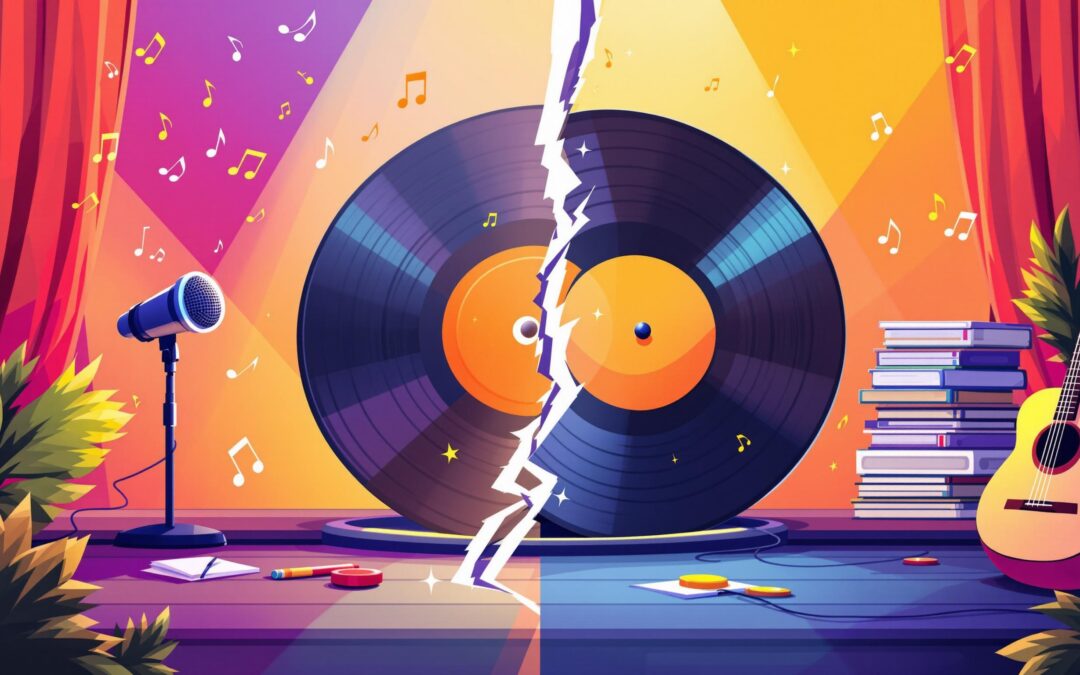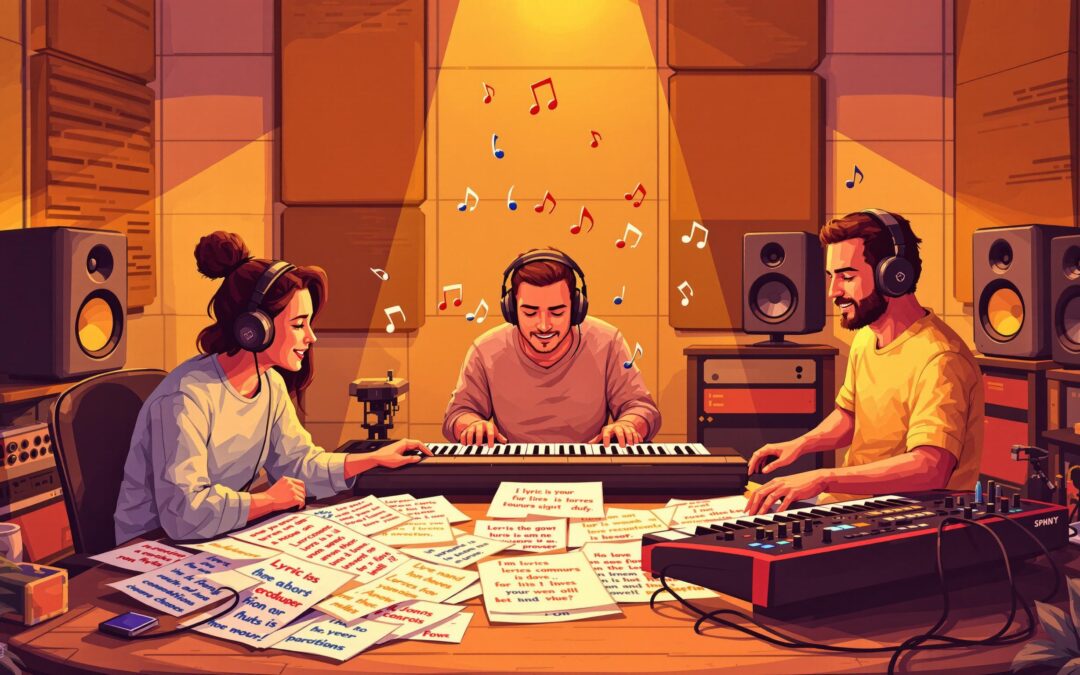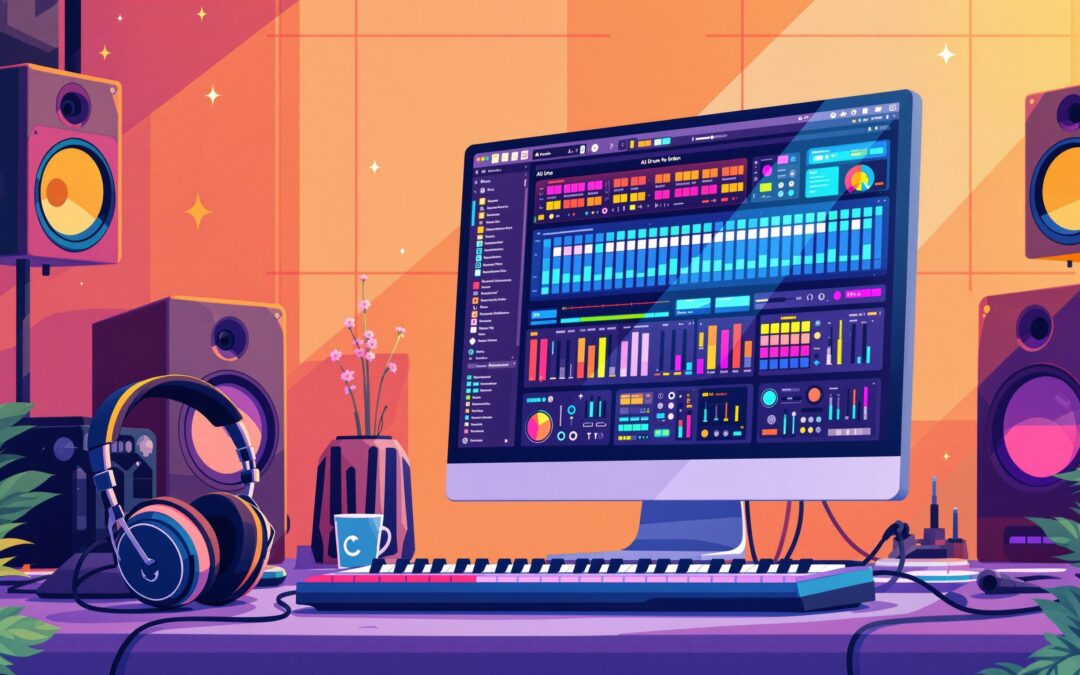Struggling with writer’s block? You’re not alone. Nearly every songwriter faces this challenge, which can delay music releases, harm creativity, and even derail careers. But don’t worry – there are practical ways to overcome it.
Here’s a quick summary of solutions to get you back on track:
- Write Freely Without Editing: Let ideas flow without worrying about perfection.
- Use Songwriting Prompts: Explore themes like relationships, dreams, or daily life for inspiration.
- Change Your Environment: Work in natural settings, urban spaces, or refresh your home studio.
- Leverage Tools & Apps: Try AI tools like ChatGPT or LyricStudio and use DAWs to organize and refine ideas.
- Build Better Habits: Set a writing schedule, save ideas quickly, and focus on progress over perfection.
These strategies will help you break through creative blocks and keep your songwriting process moving forward.
8 Ways Musicians Can Conquer Writer’s Block
Methods to Start Writing Again
Feeling stuck? There are proven ways to reignite your songwriting flow. Research shows that switching up your approach and environment can make a big difference in sparking creativity.
Quick Writing Without Editing
One way to push past writer’s block is to stop worrying about perfection and just let the ideas flow. Freewriting – writing without editing or overthinking – can help you tap into your creativity.
"You dip your toes in this unbreakable stream of consciousness until creativity gets its teeth in you and pulls you to its depths." – Curtis Tyrone Jones
Try setting aside 30 minutes to write continuously. Don’t edit or judge your work – just let the words come out. This method helps silence your inner critic and unlock fresh ideas.
Another quick trick? Pick a random word and write about it for 30 seconds. This can lead to surprising connections and spark new lyrical ideas .
If you need more structure, songwriting prompts can also be a great tool.
Writing Starters and Topics
Songwriting prompts provide a helpful starting point when you’re feeling uninspired. They offer specific themes, words, or situations to explore. Gregory Walfish, Co-founder of Xposure Music, puts it perfectly:
"Songwriting prompts provide a starting point that can help spark creativity and overcome writer’s block. By offering specific themes, words, or scenarios to write about, prompts can inspire new ideas and directions you might not have considered on your own" .
Here’s how prompts can guide your writing:
| Theme Category | Example Prompts | Writing Focus |
|---|---|---|
| Personal Experience | Childhood memories, current feelings | Emotional depth |
| Observations | Daily life, news events | Storytelling elements |
| Abstract Concepts | Dreams, hopes, fears | Metaphorical ideas |
| Relationships | Love, loss, family | Universal connections |
Sometimes, a change of scenery can also make all the difference.
Work in New Spaces
Your environment plays a big role in your creative process. Adjusting where you work can help overcome mental blocks. For example, a 2009 study from the University of British Columbia found that people performed better on creative tasks in rooms with 10-foot ceilings compared to those with 8-foot ceilings .
Here are a few ideas to refresh your creative space:
- Natural Settings: Head outdoors to a quiet, peaceful spot. Nature can encourage deep reflection .
- Urban Environments: The energy of a bustling city can inspire rhythmic and cultural elements in your work .
- Home Studio Setup: Face your workspace toward a window and use soothing colors like blue or green to create a sense of openness .
Tools and Apps for Songwriting
Modern technology offers plenty of ways to tackle creative slumps. These tools can spark new ideas when inspiration runs dry.
AI Writing Assistants
AI-powered tools can help generate lyrics and explore ideas. Here’s a quick comparison of some popular options:
| Tool Name | Best For | Key Features | Price Point |
|---|---|---|---|
| ChatGPT | General writing | Flexible prompts | Free |
| DeepBeat | Rap/Hip-hop | Focused rhyme patterns | Free tier |
| Rytr | Structured writing | Multiple song formats | Budget-friendly |
| Neural Frames | Experimental styles | Unconventional approaches | Free |
| LyricStudio.com | Professional use | Advanced customization | Premium |
Music Production Software
Digital Audio Workstations (DAWs) are essential for turning ideas into polished tracks. They offer features like:
- Instant Recording: Capture ideas as soon as they come to you
- Beat Creation: Lay down rhythmic foundations for melodies
- Sound Exploration: Experiment with a wide range of instruments and effects
- Project Organization: Keep your ideas neatly arranged and easy to access
Using a DAW allows you to hear your ideas evolve in real time, which can be a powerful motivator. Many songwriters now see their DAW as a core part of their creative toolkit .
One standout option is Write.Record.Release, which combines these features into a single platform.
Write.Record.Release
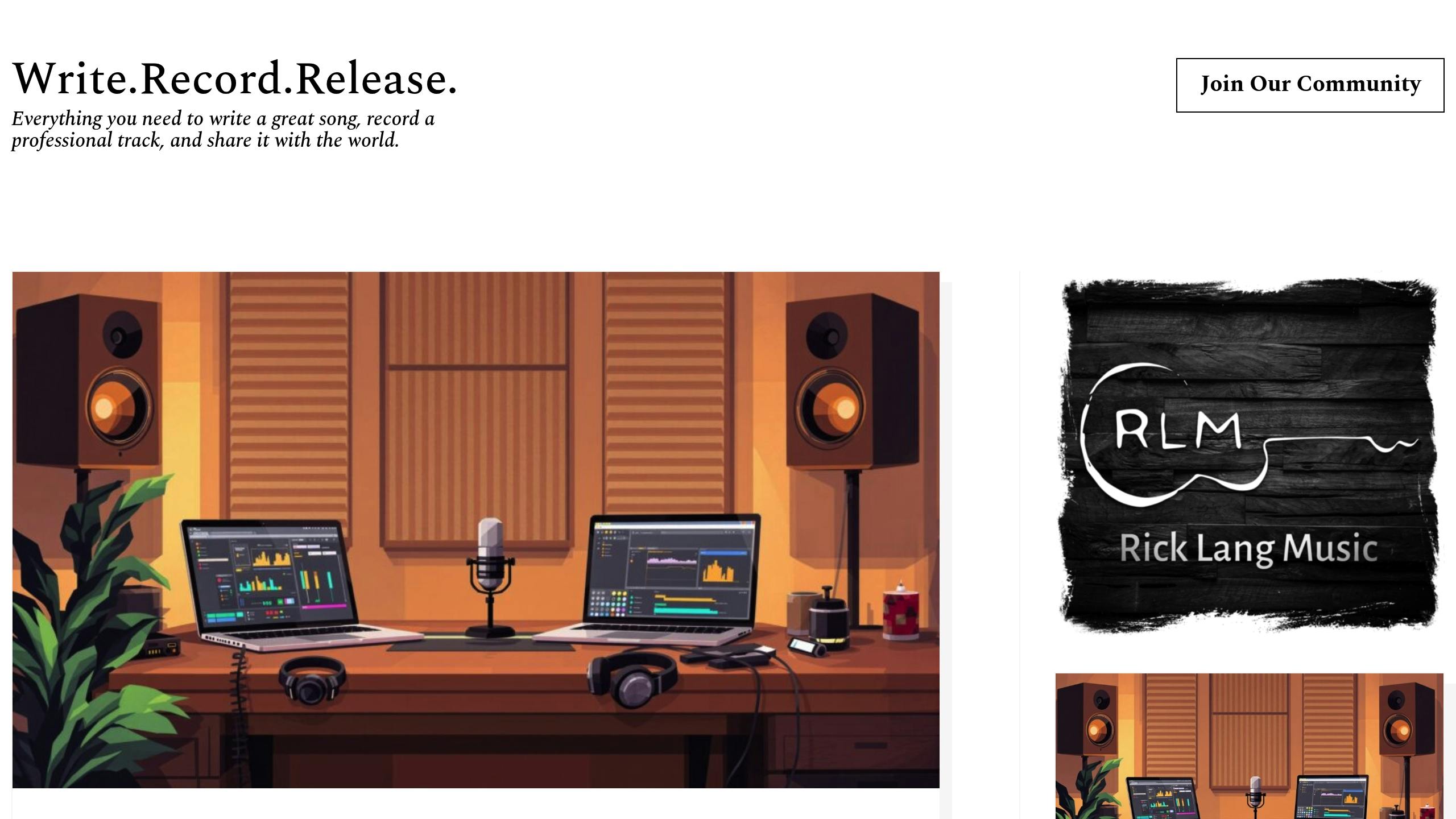
Write.Record.Release streamlines the entire songwriting process. Its AI-driven tool, Songsster, is used by over 50,000 artists to break through creative barriers .
"Songsster has revolutionized my songwriting process. It’s intuitive and sparks creativity. A must-have for any modern musician." – John Davis, Singer-Songwriter
sbb-itb-1c6af30
Building Better Writing Habits
Developing consistent songwriting habits can help you push past creative blocks and maintain a steady flow of ideas. A structured routine ensures you’re not just waiting around for inspiration to strike.
Set a Writing Schedule
Start small with daily 15–30 minute sessions, and stick to specific times like "Monday, Wednesday, and Friday at 10 AM" .
Here’s a simple breakdown of how to structure your writing sessions:
| Time Block | Activity | Purpose |
|---|---|---|
| Morning (6-9 AM) | Core writing | Best for creative energy |
| Afternoon (2-4 PM) | Editing/revising | Ideal for technical focus |
| Evening (7-9 PM) | Idea collection | Great for brainstorming |
You can also try habit stacking – tie songwriting to routines you already have. For instance, if you meditate every morning, follow it up with your writing session. This approach, popularized by James Clear in Atomic Habits, makes it easier to stick to new habits .
A regular schedule helps you avoid procrastination and keeps the creative process moving.
Handle Self-Doubt
Self-doubt can stall creativity, but changing how you look at your work can make a big difference. Instead of asking, “Is this song good enough?”, ask yourself, “Does this lyric express what I want to say?” .
"I realized what I actually loved about songwriting in the beginning was the craft, not the recognition." – Ramita Arora, Founder of WriteTheNextSong.com
Set deadlines and limit yourself to a set number of revisions to avoid endless tweaking . Releasing music, even if it’s not perfect, is far more productive than obsessing over every detail.
Save Ideas Quickly
Once you’ve addressed self-doubt, make sure you don’t lose your ideas. Use tools like Evernote to capture inspiration the moment it strikes. It supports multiple formats:
- Text notes: Jot down lyrics or chord progressions.
- Voice memos: Record melodies on the go.
- Images: Save photos of handwritten notes or chord charts.
- Scanned documents: Digitize your physical songwriting materials.
Evernote’s AI-powered search makes it easy to find specific ideas later . Plus, with syncing across devices, your notes are always accessible, so you never risk losing a creative spark.
To stay organized, create separate notebooks for different elements like lyrics, melodies, and chord progressions. A clear system turns random bursts of inspiration into polished song components.
When to Pause or Continue
Taking a Break
Feeling stuck, overwhelmed, or uninspired? If dread creeps in every time you think about music, your ideas feel repetitive, or unfinished songs keep piling up, it might be time to step back. Music should enhance your life, not strain your relationships or drain your energy. Whether you need a short pause or a longer reset, the key is to allow yourself the space to recharge. Overworking can sap your energy and make it hard to tell the difference between great ideas and ones that need more work.
Helpful Activities During a Break
When you decide to take a break, shift your focus with activities that keep your mind engaged and refreshed. Here are a few ideas:
- Active Listening: Dive into songs within your genre. Pay attention to how they’re structured, the lyrics, and the arrangements.
- Change Your Scenery: Spend time in places like coffee shops, parks, libraries, or art galleries to spark new ideas.
- Explore Other Creative Outlets: Try journaling, reading poetry, watching music documentaries, or visiting museums.
These activities can help you reset and might even inspire new perspectives for your music. Once you feel recharged, revisit your old projects to ease back into the creative flow.
Revisiting Old Songs
Going back to unfinished songs can be a great way to reignite your creativity. Start by organizing your past work based on how close each song is to being finished. Tracks that are nearly done might just need some polish, while partially formed ideas could require filling in gaps. Basic concepts, on the other hand, may benefit from a completely fresh approach.
Keep a songwriting journal to jot down your initial thoughts, emotions, and technical ideas for each piece. This can serve as a roadmap when you revisit them. Setting deadlines for yourself can also help turn unfinished ideas into completed songs. Even finishing songs that aren’t perfect can help you build confidence and momentum for your next projects.
Conclusion: Next Steps
Key Takeaways
Writer’s block doesn’t need to stop your songwriting progress. The strategies we’ve discussed are designed to keep your creativity flowing with practical methods. For example, setting regular writing sessions trains your brain to spark ideas consistently . Physical activities like walking can improve your mental clarity and inspire fresh thoughts . Juggling multiple songs at once can help you avoid getting stuck on a single track while offering new perspectives .
Allowing yourself to create imperfect first drafts encourages the flow of ideas. These tips give you a solid foundation to start making progress today.
Get Started Now
Here’s how you can begin:
Set up a space free of distractions and keep an idea bank handy to capture inspiration as it strikes. Dedicate 30 minutes to writing without worrying about perfection – just focus on getting ideas down. The editing and refining can come later.
To keep the momentum going, try these simple yet effective techniques:
| Time Frame | Action | What You’ll Gain |
|---|---|---|
| First 30 minutes | Write freely, no editing | A collection of raw ideas |
| Next hour | Jump between song sections | Fresh perspectives to unblock creativity |
| Daily | Record melody or lyric snippets | A growing pool of inspiration |
| Weekly | Study a few favorite songs | Insights from successful works |
